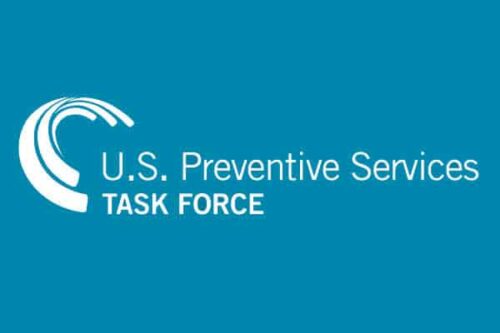The US Preventive Services Task Force’s (USPSTF) recommendation on the use of aspirin to reduce the risk of cardiovascular events (nonfatal myocardial infarction and stroke) has been finalized and published.1,2 The new recommendation, which updates the 2016 USPSTF recommendation on aspirin use to prevent cardiovascular disease (CVD) and colorectal cancer, applies to adults ages 40 years or older without signs or symptoms of CVD or known CVD, and who are not at increased risk for bleeding (eg, no history of gastrointestinal ulcers, recent bleeding, other medical conditions, or taking medications that increase bleeding risk, such as nonsteroidal anti-inflammatory drugs, steroids, platelet inhibitors, and anticoagulants). It is based on new trial evidence, updated analyses of the evidence from primary CVD prevention populations, and longer-term follow-up data from the Women’s Health Study.
The important changes in the updated and finalized statement are as follows:
- The USPSTF now states that for adults 40 to 59 years of age, aspirin can be considered on an individualized basis for those at increased risk of CVD (a 10% or greater CVD risk over 10 years as measured by the American College of Cardiology/American Heart Association’s Heart Risk Calculator). The USPSTF concluded that aspirin has a small net benefit in this group, and its use should be decided on an individual basis. Those who are not at an increased risk for bleeding and are willing to take low-dose aspirin daily are more likely to benefit. The absolute magnitude of benefit increases with increasing 10-year CVD risk, and the magnitude of lifetime benefits is greater when aspirin is initiated at a younger age.
- The USPSTF now advises against starting aspirin for the primary prevention of CVD in individuals 60 years of age and older. The USPSTF determined that, although the magnitude of the harms associated with aspirin therapy (increased risk of gastrointestinal bleeding, intracranial bleeding, and hemorrhagic stroke) is small overall, risks increase in older age groups, particularly in adults older than 60 years.
- Data suggest clinicians and patients should consider stopping aspirin use around age 75 in those who were eligible for therapy and chose to start taking aspirin, the Task Force said.
The updated recommendation changed the patients’ age range for initiation of aspirin for primary prevention to 40 years instead of 50 years of age (C grade evidence), and also changed the recommendation about aspirin from a routine one for all persons in the recommended age range (D grade evidence).
The USPSTF also noted that it is unclear whether aspirin use reduces the risk of colorectal cancer incidence or mortality.
The statement explains that implementation of this recommendation in adults aged 40 to 59 years begins with estimating CVD risk using a CVD risk estimator. If the estimated CVD risk is 10% or greater, use shared decision-making, taking into account potential benefits and harms of aspirin use, as well as the patient’s values and preferences, to inform the decision about initiating aspirin. “Clinical decisions involve more consideration than evidence alone,” the statement says. “Clinicians should understand the evidence but individualize decision-making to the specific patient or situation.”
Persons who place a higher value on the potential benefits (decreasing an individual’s risk of a myocardial infarction or stroke) than on the potential harms (risk of gastrointestinal or intracranial bleeding) may choose to initiate low-dose aspirin use. Persons who place a higher value on the potential harms or the burden of taking a daily preventive medication than on the potential benefits may choose not to initiate low-dose aspirin use. The recommended dose of aspirin remains 81 mg daily.
More research is needed to evaluate the accuracy of CVD risk prediction in all racial and ethnic and socioeconomic groups and the gastrointestinal bleeding risk associated with aspirin use in populations representative of the US primary CVD prevention population.[/vc_column_text][/vc_column][/vc_row][vc_row el_class=”rex_container” bg_color_overlay=”no-color” bg_color_overlay_bottom=”no-color”][vc_column][vc_column_text]
References
1. US Preventive Services Task Force. Final recommendation statement. Aspirin use to prevent cardiovascular disease: preventive medication. April 26, 2022. Accessed June 15, 2022. https://www.uspreventiveservicestaskforce.org/uspstf/recommendation/aspirin-to-prevent-cardiovascular-disease-preventive-medication#fullrecommendationstart
2. US Preventive Services Task Force, Davidson KW, Barry MJ, Mangione CM, et al. Aspirin use to prevent cardiovascular disease: US Preventive Services Task Force Recommendation Statement. JAMA. 2022;327(16):1577-1584. doi: 10.1001/jama.2022.4983






